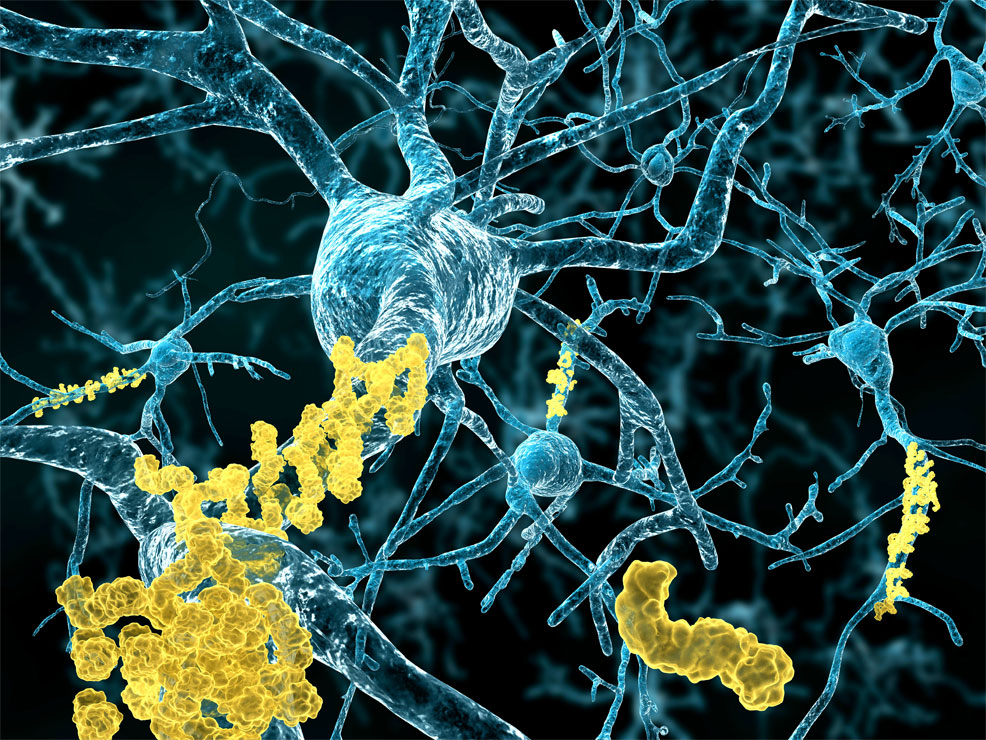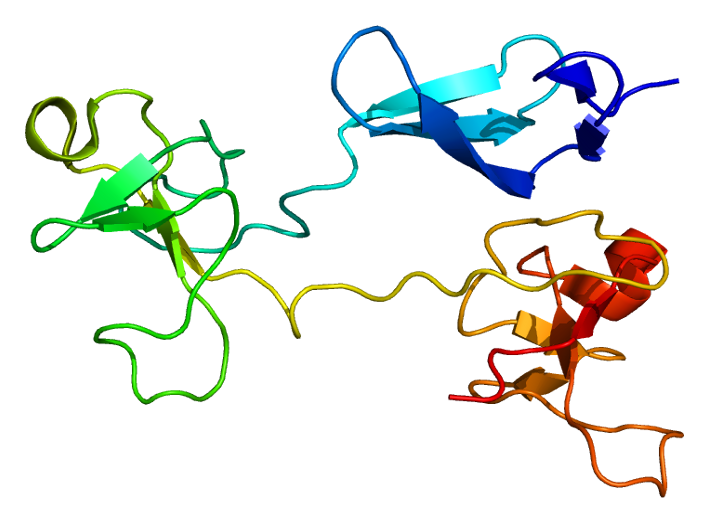
24th April 2024 Genetic variant cuts Alzheimer's risk by 71% A rare variation in a gene that makes fibronectin is shown to reduce the odds of developing Alzheimer's disease by over 70%.
Alzheimer's is emerging as a major health challenge for the 21st century. This neurodegenerative disorder, which currently lacks a cure, is characterised by progressive cognitive decline and memory loss. While the progression of the disease can vary widely between individuals, it typically leads to death within three to nine years of the initial diagnosis. Currently, around 57 million people worldwide are affected by Alzheimer's, a figure that is predicted to nearly triple by 2050, according to Alzheimer's Disease International. In a significant discovery, researchers from Columbia University in New York have identified a genetic variant that reduces the odds of developing Alzheimer's by up to 70% and may be protecting thousands of people in the United States. The protective variant, which appears to allow toxic forms of amyloid out of the brain and through the blood-brain barrier, supports emerging evidence that the brain's blood vessels play a large role in Alzheimer's disease and could herald a new direction in therapeutic development. "Alzheimer's may get started with amyloid deposits in the brain, but the disease manifestations are the result of changes that happen after the deposits appear," explains Caghan Kizil, PhD, co-leader of a study published this month in the peer-reviewed journal Acta Neuropathologica. "Our findings suggest that some of these changes occur in the brain's vasculature and that we may be able to develop new types of therapies that mimic the gene's protective effect to prevent or treat the disease." The protective variant identified by the study occurs in a gene that makes fibronectin, a component of the blood-brain barrier – a lining surrounding the brain's blood vessels – that controls the movement of substances in and out of the brain.
Structure of the fibronectin (FN1) protein. Credit: Emw, CC BY-SA 3.0, via Wikimedia Commons
Fibronectin is usually present in the blood-brain barrier in tiny amounts, but increases substantially in people with Alzheimer's disease. The variant identified in the fibronectin gene seems to protect against Alzheimer's by preventing the buildup of excess fibronectin at the blood-brain barrier. "It's a classic case of too much of a good thing," says Kizil. "It made us think that excess fibronectin could be preventing the clearance of amyloid deposits from the brain." The researchers confirmed that hypothesis in a zebrafish model and have additional studies in mice underway. They also found that reducing fibronectin in the animals increased amyloid clearance and reduced other damage caused by Alzheimer's. "These results gave us the idea that a therapy targeting fibronectin and mimicking the protective variant could provide a strong defence against the disease in people," explains Richard Mayeux, MD, study co-leader. The newest treatments for Alzheimer's disease target the amyloid deposits directly and are very efficient at removing the deposits via the immune system. However, simply removing the deposits this way doesn't improve symptoms or repair other damage. "We may need to start clearing amyloid much earlier and we think that can be done through the bloodstream," Mayeux adds. "That's why we are excited about the discovery of this variant in fibronectin, which may be a good target for drug development."
Protective gene was found in people resilient to Alzheimer's disease
The researchers discovered the protective variant in people who never developed symptoms but who had inherited the e4 form of the APOE gene, which significantly increases the risk of developing Alzheimer's disease. "These resilient people can tell us a lot about the disease and what genetic and non-genetic factors might provide protection," says Badri N. Vardarajan, PhD, study co‑leader. "We hypothesised that these resilient people may have genetic variants that protect them from APOEe4." To find protective mutations, the Columbia researchers sequenced the genomes of several hundred APOEe4 carriers over age 70 of various ethnic backgrounds, including those with and without Alzheimer's disease. The study identified the fibronectin variant, and the Columbia team publicised their results in a preprint for other researchers to view. Based on the Columbia team's observations, another group from Stanford and Washington universities replicated the study in an independent cohort of APOEe4 carriers. "They found the same fibronectin variant, which confirmed our finding and gave us even more confidence in our result," Vardarajan says. The two groups combined the data on their 11,000 participants, which allowed them to calculate that the mutation reduces the odds of developing Alzheimer's in APOEe4 carriers by 71% and forestalls the disease by roughly four years in those who eventually develop the disease. The researchers estimate that 1% to 3% of APOEe4 carriers in the United States – roughly 200,000 to 620,000 people – may also carry the protective fibronectin mutation. The fibronectin variant, though discovered in APOEe4 carriers, could protect against Alzheimer's disease in people with other forms of APOE. "There's a significant difference in fibronectin levels in the blood-brain barrier between cognitively healthy individuals and those with Alzheimer's disease, independent of their APOEe4 status," Kizil says. "Anything that reduces excess fibronectin should provide some protection, and a drug that does this could be a significant step forward in the fight against this debilitating condition."
Comments »
If you enjoyed this article, please consider sharing it:
|
||||||








